
Latest Type 2 Diabetes News and Research
Bacteria may be involved in the development of type 2 diabetes, study shows
Bacteria may be involved in the development of type 2 diabetes, according to a study published today in Nature Metabolism by researchers from Université Laval, the Québec Heart and Lung Institute, and McMaster University.
Biomarker in saliva linked to emergence of childhood obesity
A molecular marker in saliva is associated with the emergence of childhood obesity in a group of preschool-aged Hispanic children.
Researchers identify a gut microbe generated byproduct linked to cardiovascular disease
Cleveland Clinic researchers have identified a gut microbe generated byproduct - phenylacetylglutamine - that is linked to development of cardiovascular disease, including heart attack, stroke and death.
Newly developed mobile app helps reduce pain in osteoarthritis patients
By performing a few simple physical exercises daily, and receiving information about their disease regularly, 500 osteoarthritis patients were able to on average halve their pain in 6 months - and improve their physical function.
Dietary changes may prevent or reverse age-related effects in the brain
A study using neuroimaging led by Stony Brook University professor and lead author Lilianne R. Mujica-Parodi, PhD, and published in PNAS, reveals that neurobiological changes associated with aging can be seen at a much younger age than would be expected, in the late 40s.
Type 2 diabetes mellitus responds to weight loss surgery
Type 2 diabetes mellitus (T2DM) is a metabolic condition with close links to weight gain. Since weight loss is a proven way to control T2DM, it is to be expected that surgeries to achieve weight loss should result in better regulation of blood glucose levels.
Yale discovery has implications for treatment of diabetes and non-alcoholic fatty liver disease
Many health problems in the developed world stem from the disruption of a delicate metabolic balance between glucose production and energy utilization in the liver.
Dental teams could play key role in early detection of Type 2 and pre-diabetes
Dental teams could play an integral role in identifying people at high risk of developing Type 2 diabetes as well as in the early detection of the condition in those who are undiagnosed, new research suggests.
Researchers detect a novel cause of acquired lipodystrophy
Nonalcoholic fatty liver disease (NAFLD) is mostly diagnosed in overweight and obese people. However, severe forms of NAFLD can also be detected in rare genetic diseases such as lipodystrophy or in patients with HIV, putting them at a high risk for developing liver failure, diabetes and cardiovascular diseases.
A simple online physical activity guideline for people with spinal cord injury
A team of researchers has developed an online platform of tried and true resources to help people living with spinal cord injury lead a more active life.
Coronavirus pathology findings shows how the disease affects the body
Coronavirus disease (COVID-19) is spreading rapidly across the globe. Since COVID-19 is a new disease, scientists are racing to determine the nature of the virus and how it affects the human body. Now, a team of scientists, have shed light on how the virus affects the respiratory tract. The study provides essential information and descriptions of the early phase pathology of COVID-19 infection.
Human stem cells cure diabetes in mice
Diabetes is characterized by elevated levels of blood sugar and is tied to various health complications. The condition is a global health issue with the number of people with diabetes increasing from 108 million in 1980 to 422 million in 2014.
'Soda tax' has minimal to no influence on sugary-beverage consumption, study finds
One year into Philadelphia's 1.5-cents-per-ounce "soda tax," new findings show that the law had minimal to no influence on what Philadelphians are drinking.
Scientists discover new biological mechanism of insulin signaling
In a discovery that may further the understanding of diabetes and human longevity, scientists at Scripps Research have found a new biological mechanism of insulin signaling.
Millions of people have prediabetes – could you?
High blood sugar can cause serious complications if it is not appropriately controlled. Type 2 diabetes is a chronic disease that occurs when blood glucose is too high due to the body’s inability to make enough insulin.
Effects of obesity mirror those of aging, study shows
Globally, an estimated 1.9 billion adults and 380 million children are overweight or obese. According to the World Health Organization, more people are dying from being overweight than underweight. Researchers at Concordia are urging health authorities to rethink their approach to obesity.
A step towards precision medicine for the management of monogenic diabetes
Diabetes affects more than 400 million people worldwide and is a major public health problem. Although commonly referred to as a single disease, it actually constitutes a group of metabolic disorders with hyperglycemia as a common feature. Of all its forms, monogenic diabetes - due to a mutation in one of the genes involved in the management of blood sugar levels - affects 1% to 4% of all cases of diabetes.
Survey: Over half of GPs, nurses who treat type 2 diabetics do not carry out annual kidney test
A new UK-wide survey, conducted by Napp Pharmaceuticals, suggests that over half (54%, n=403) of GPs and nurses who treat patients with type 2 diabetes do not carry out a vital routine test annually, which is used to identify early markers of kidney damage.
Scientists identify chemicals in urine that are specific to overactive bladder
Millions of people might eventually be spared the embarrassment and extreme isolation caused by wetting themselves, thanks to new research.
Researchers say ‘yes’ to a heavy breakfast to lose weight
There has been some debate on whether or not to pile up on calories at the first meal of the day. According to German researchers, to lose weight, one must eat a healthy and hearty breakfast.



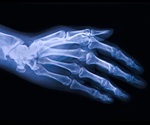






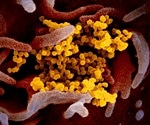


_1b78fec41a5143afb6e7b9ad317023d2-150x125.jpg)
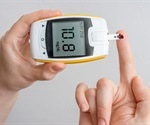

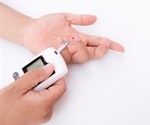
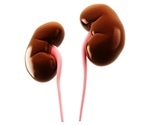


































No hay comentarios:
Publicar un comentario